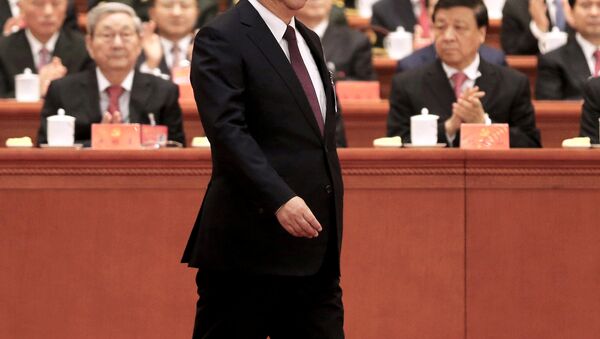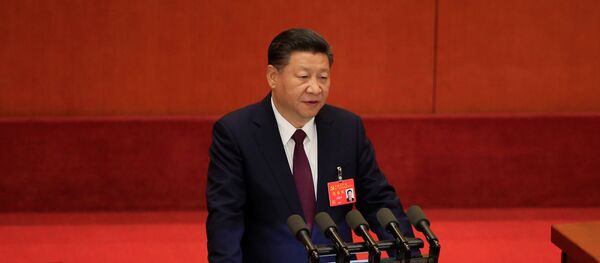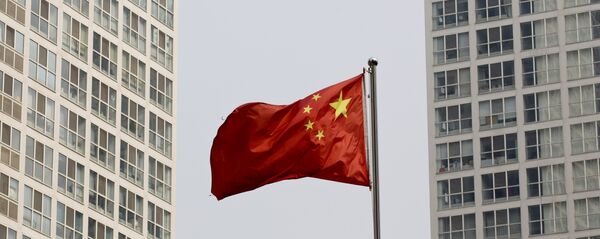MOSCOW (Sputnik) — A day after the 19th National Congress of the CPC concluded on Tuesday, Xi introduced five new members of the Politburo Standing Committee (PBSC), along with Chinese Premier Li Keqiang, at a press conference in Beijing and promised to work hard to be worthy of the trust from other party members.
"Here, on behalf of the newly elected central leadership, I wish to express our heartfelt thanks to all other party members for the trust they have placed in us. We will work diligently to meet our duty, fulfill our mission and be worthy of their trust," Xi said.
On Par With Former Leaders
Xi’s doctrine of governance, known as Xi Jinping Thought on Socialism with Chinese Characteristics for a New Era, was enshrined in the revised CPC constitution released following the end of the 19th National Congress of the CPC.
However, political analysts told Sputnik that the importance of adding Xi’s doctrine into the CPC constitution should not be overstated.
"The CPC constitution is more like a piece of paper. It does not offer additional legitimacy. The real foundation for power does not rely on this. Whoever is in charge at the time could have a chance to revise the CPC constitution," Li Datong, a Beijing-based political analyst who served as an editor at the Communist Party newspaper China Youth Daily, told Sputnik.
Establishing Authority
After taking over top CPC leadership as the party’s general secretary in 2012, Xi launched an ambitious campaign to lead the nation toward "the Chinese Dream of national rejuvenation," as he tried to establish authority in the world’s most populous nation.
Beijing-based expert Li Datong suggested that after five years in office, Xi continues to face opposition from some CPC members.
"If Xi wants to seek another term after 2022, I don’t think anyone would agree. Many people inside the party still don’t agree with Xi, because so many officials are living in fear every day. If you choose the wrong faction, you could face jail time easily. Corruption is so widespread that only those who picked the wrong side were punished," he said.
Lack of Clear Successor
After five new members of the PBSC were revealed Wednesday, a clear distinction from previous lineups was that all of new PBSC members were above 60 years old, which meant none of them would be fit to replace Xi as the top leader of the CPC by the party's 20th congress in 2022 due to age restrictions.
Xi’s decision to not name a clear successor in the new PBSC lineup indicates that he has learned lessons on the restrictions an early successor appointment could have on the current leadership, political analysts suggested.
"Both Mao Zedong and Deng Xiaoping appointed their successors multiple times and both faced a lot of troubles. The leaders after them have learned the lessons, because [appointing a successor] would put a lot of restrictions on the freedom of the current leader… Before making key decisions, you also need to consult with your successor to make sure you don’t hurt him," Ding Xueliang, a political analyst and a social science professor at the Hong Kong University of Science and Technology, told Sputnik.
Despite his public image as a strong leader, Xi’s power in China has not reached the level of Deng or Mao, the Hong Kong-based scholar argued.
"He still has a lot to do in the next 5 years before the next National Congress of the CPC to reach the goals in his heart," Ding said.




